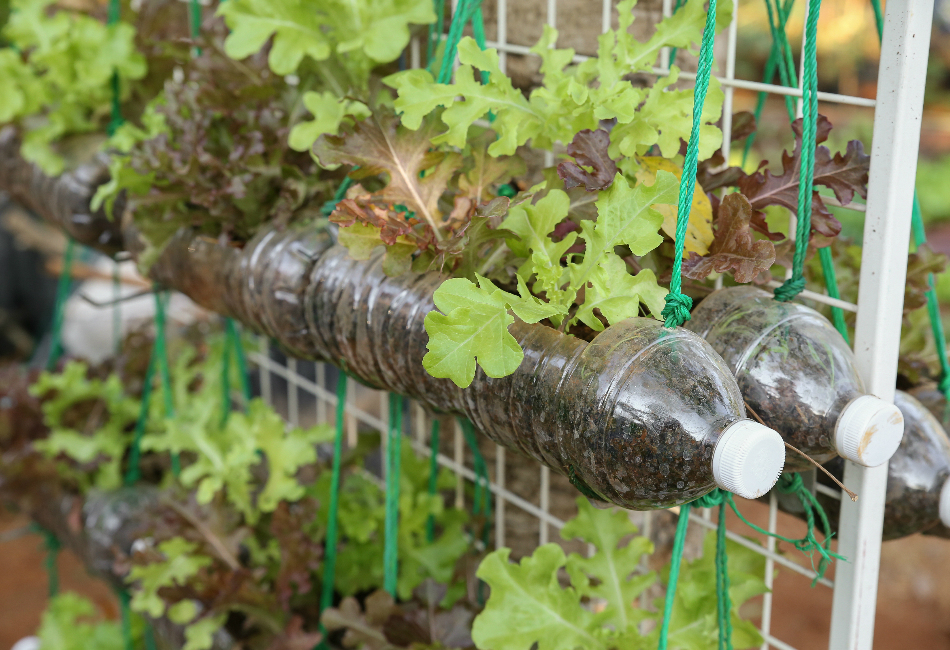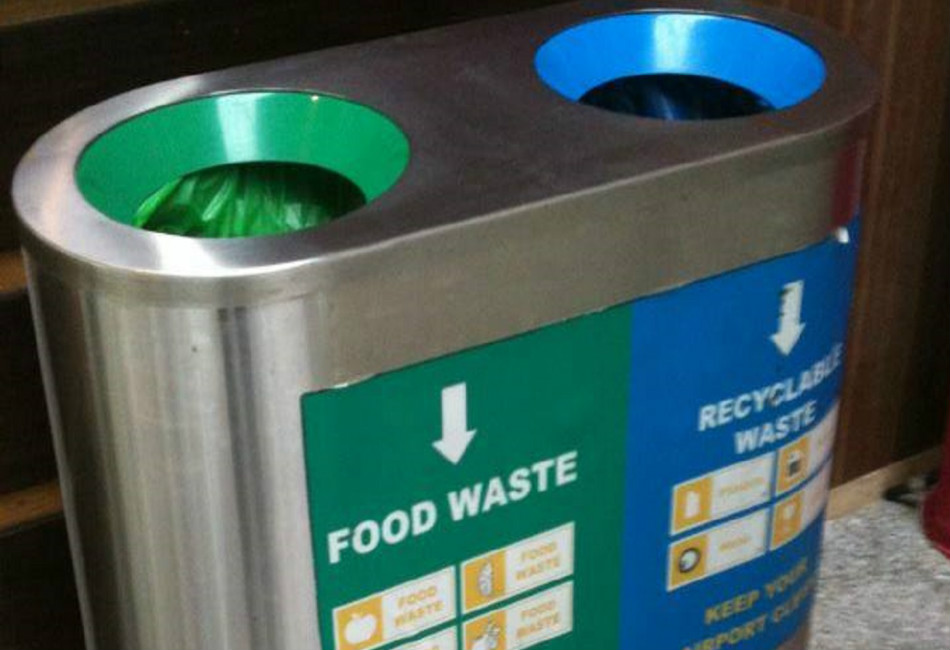Download Free Vegan Starter Kit -
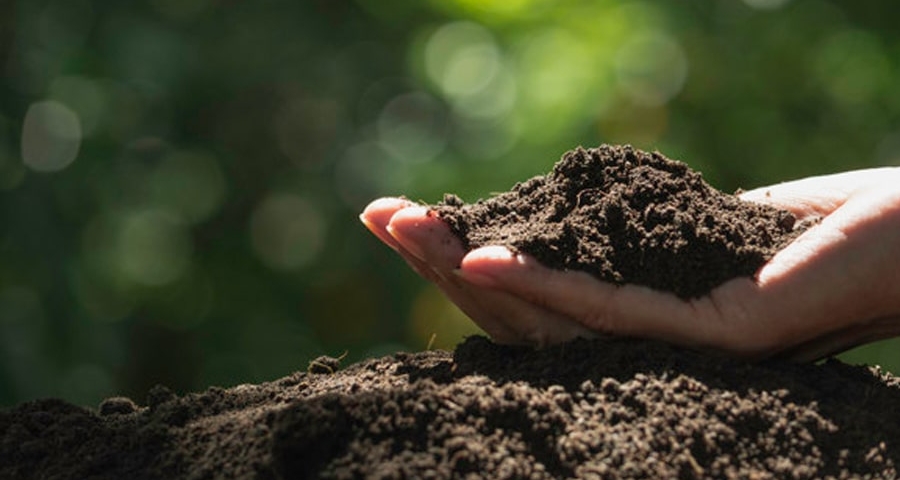
Why You NEED To Start Composting Today
Waste not, want not! Did you know India generates a whopping 62 million tonnes of waste each year, with the daily average at 1 lakh metric tonnes per day? That’s a lot of trash. Have you ever thought about where all that trash goes? Landfills.
The Problem With Landfills
A majority of the waste generated in India ends up in landfills, which are notorious for greenhouse gas emissions. The food and other trash that is dumped into landfills begin decaying and as a result, releases methane – a gas that’s almost 30 times more potent than carbon dioxide, and traps heat in the atmosphere. Methane is one of the top causes of fires at landfills, and the smoke pollutes the atmosphere further.
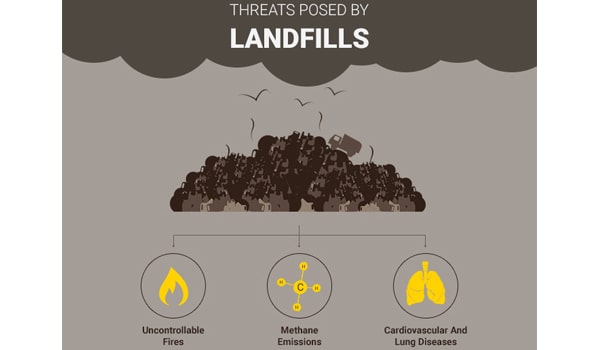
Image courtesy NDTV
The problem in India is, many municipal bodies don’t segregate waste properly, and much of the recyclable waste like paper and plastic ends up in landfills. Food waste is dumped as-is into landfills, and without enough microbial activity, it doesn’t break down (the way it would in a composting bin), and the food begins to decay, giving off foul odours and becoming a magnet for all kinds of diseases and infections.
There’s also the issue of leachate - this is a toxic liquid that forms when water streams through landfill waste and picks up toxins. Rainwater falling on landfill waste? It forms leachate and trickles down into our soil and underground water supply, contaminating both.
Why Composting Is The Need Of The Hour
It’s simple: there is no planet B, and we need to take care of the Earth and the environment! Waste management is a major problem and health hazard not only for humans but the animals we share the planet with. Remember the story of the abandoned dairy cow that had 50 kilograms of plastic removed from its stomach? This is the plight of hundreds of thousands of abandoned street animals. Disposing of your garbage in plastic bags isn’t doing them or the environment any favours.
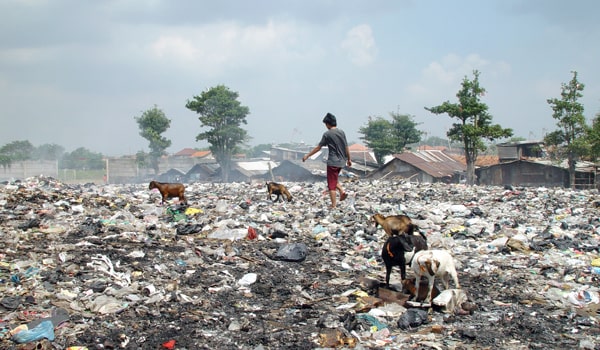
Composting is also needed for our soil to replenish and nourish itself. The seeds, fruits and vegetable peels and scraps that we throw away are full of nutrients, which can and should make their way back into the soil. Even dry leaves are better off in the soil - burning them just releases more soot into the atmosphere and damages the ozone layer.
Composting: The Basics
Composting is a process that turns feedstock (food scraps and other biodegradable substances) into a dark, soil-like product that can be used as a fertilizer/manure for gardening, landscaping, and plants. Practically any organic materials and disposables can be used. This includes food waste, paper, napkins, tea bags, cardboard and the like.
How Do I Do It?
Some apartment complexes and gated communities in urban India have their own composting systems and waste segregation in place - but there are even more residential complexes that don’t have any system in place.
Composting shouldn’t be left for the home alone – it’s something that can be done at the workplace, with good results. It’s just a matter of understanding what goes into it, and how to go about it.
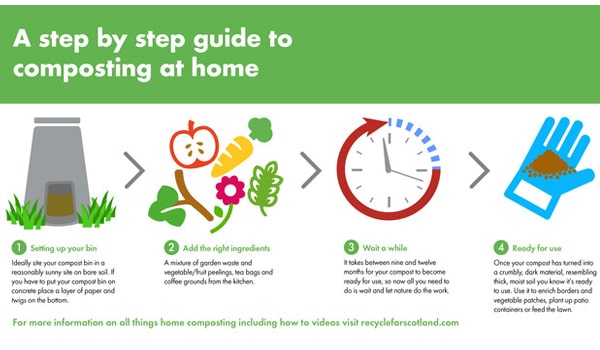
Image courtesy Zerowaste Partners
Segregation: The first step is segregation. You need to keep your dry waste, wet waste and recyclables separately. Dry waste includes paper, bottles It seems easy enough: separate your waste, then compost the wet waste.
Measure: For effective composting, you need to understand how much waste is generated. How much food is tossed out each week? How much paper and cardboard end up in the bin? You will need to keep track and understand how much waste is generated and choose the right system for it – tumbler or bin.
- Tumbler: For larger companies and homes, the tumbler system is a good option. Compost tumblers are sealed tumblers which can be flipped/rotated to mix the composting materials within it. By flipping the tumbler every couple of days, the decomposing materials get oxygen, thereby by speeding up the process. Bins work on the same principle, but stay stationary.
- Countertop bin: This is ideal for the coffee station at work and the grounds and tea bags that are tossed out from there. It’s also ideal for the home kitchen.
- Home biogas: This system converts food waste into clean, green fuel that can be used as cooking gas.
Segregation is easy enough – just speak to your office and building administration and get the housekeeping staff to place separate bins for recyclables and wet waste. Then it’s a matter of collecting the wet/kitchen/organic waste and placing it in a composter. Find a designated zone for it, one that doesn’t get in the way of anyone’s work. And place a composter there!
And if you thought it’s smelly business, you’re wrong: there are great indoor composters with filters that keep the odours out while breaking down the waste. Try:
Get Involved!
The most important thing is to get involved and to make other people aware. Take the initiative by reaching out to your HR department, residents’ welfare association, building association or office administration – many times, it just takes a little nudge to get people to make the switch.
Now that you know the basics, why not take the plunge? We don’t have till tomorrow - start today. For yourself, the animals and the planet.
Like this?
Read: 7 Tips To Reduce Waste At Home Every Day!
Read more: The Legacy Left Behind By The Father Of Permaculture - Bill Mollison
AUTHOR

trending
Be a Vegan First Informer
Send us buzzworthy news and updates
Explore
Contact Us
About Us
Stay Connected
Copyright ⓒ 2017-2023. VEGAN PASSION PRIVATE LIMITED. All Rights reserved.
For more information, please write to hello@veganfirst.com
Registered Office Address: 55, 2nd floor, lane 2, Westend Marg, Saidullajab, Near Saket Metro Station, New Delhi, Gadaipur, New Delhi South West Delhi, DL

2.png)

.png)
.png)
2.png)
2.png)
2.png)


1.png)

